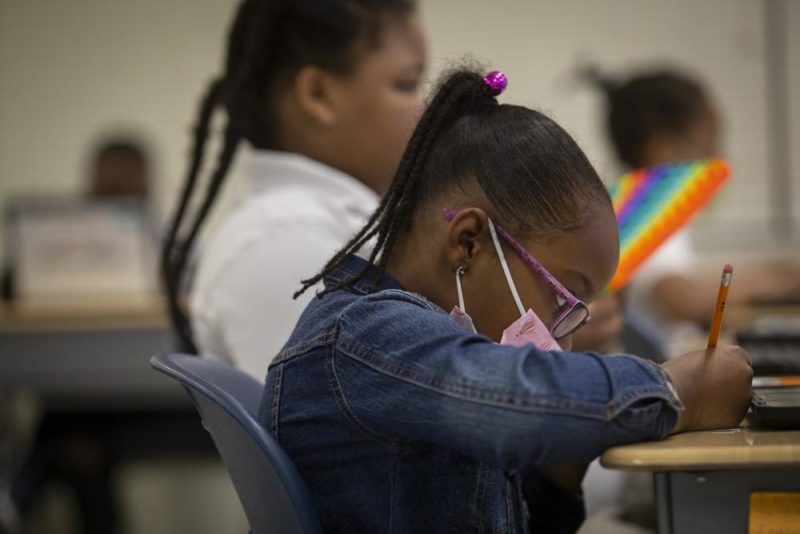Massive learning setbacks show COVID’s sweeping toll on kids
Share
Explore Our Galleries
Breaking News!
Today's news and culture by Black and other reporters in the Black and mainstream media.
Ways to Support ABHM?
By Bianca Vasquez Toness and Sharon Lurve, Associated Press

The COVID-19 pandemic devastated poor children’s well-being, not just by closing their schools, but also by taking away their parents’ jobs, sickening their families and teachers, and adding chaos and fear to their daily lives.
The scale of the disruption to American kids’ education is evident in a district-by-district analysis of test scores shared exclusively with The Associated Press. The data provide the most comprehensive look yet at how much schoolchildren have fallen behind academically.
The analysis found the average student lost more than half a school year of learning in math and nearly a quarter of a school year in reading – with some district averages slipping by more than double those amounts, or worse.
[…]
And kids aren’t doing well, especially those who were at highest risk before the pandemic. The data show many children need significant intervention, and advocates and researchers say the U.S. isn’t doing enough.
Together, Reardon and Kane created a map showing how many years of learning the average student in each district has lost since 2019. Their project, the Education Recovery Scorecard, compared results from a test known as the “nation’s report card” with local standardized test scores from 29 states and Washington, D.C.
In Memphis, Tennessee, where nearly 80% of students are poor, students lost the equivalent of 70% of a school year in reading and more than a year in math, according to the analysis. The district’s Black students lost a year-and-one-third in math and two-thirds of a year in reading.
For church pastor Charles Lampkin, who is Black, it was the effects on his sons’ reading that grabbed his attention. He was studying the Bible with them one night this fall when he noticed his sixth and seventh graders were struggling with their “junior” Bible editions written for a fifth grade reading level. “They couldn’t get through it,” Lampkin said.
Lampkin blames the year and a half his sons were away from school buildings from March 2020 until the fall of 2021.
Schools and their students may have benefited if some COVID funds weren’t diverted.
More breaking news here.









Comments Are Welcome
Note: We moderate submissions in order to create a space for meaningful dialogue, a space where museum visitors – adults and youth –– can exchange informed, thoughtful, and relevant comments that add value to our exhibits.
Racial slurs, personal attacks, obscenity, profanity, and SHOUTING do not meet the above standard. Such comments are posted in the exhibit Hateful Speech. Commercial promotions, impersonations, and incoherent comments likewise fail to meet our goals, so will not be posted. Submissions longer than 120 words will be shortened.
See our full Comments Policy here.